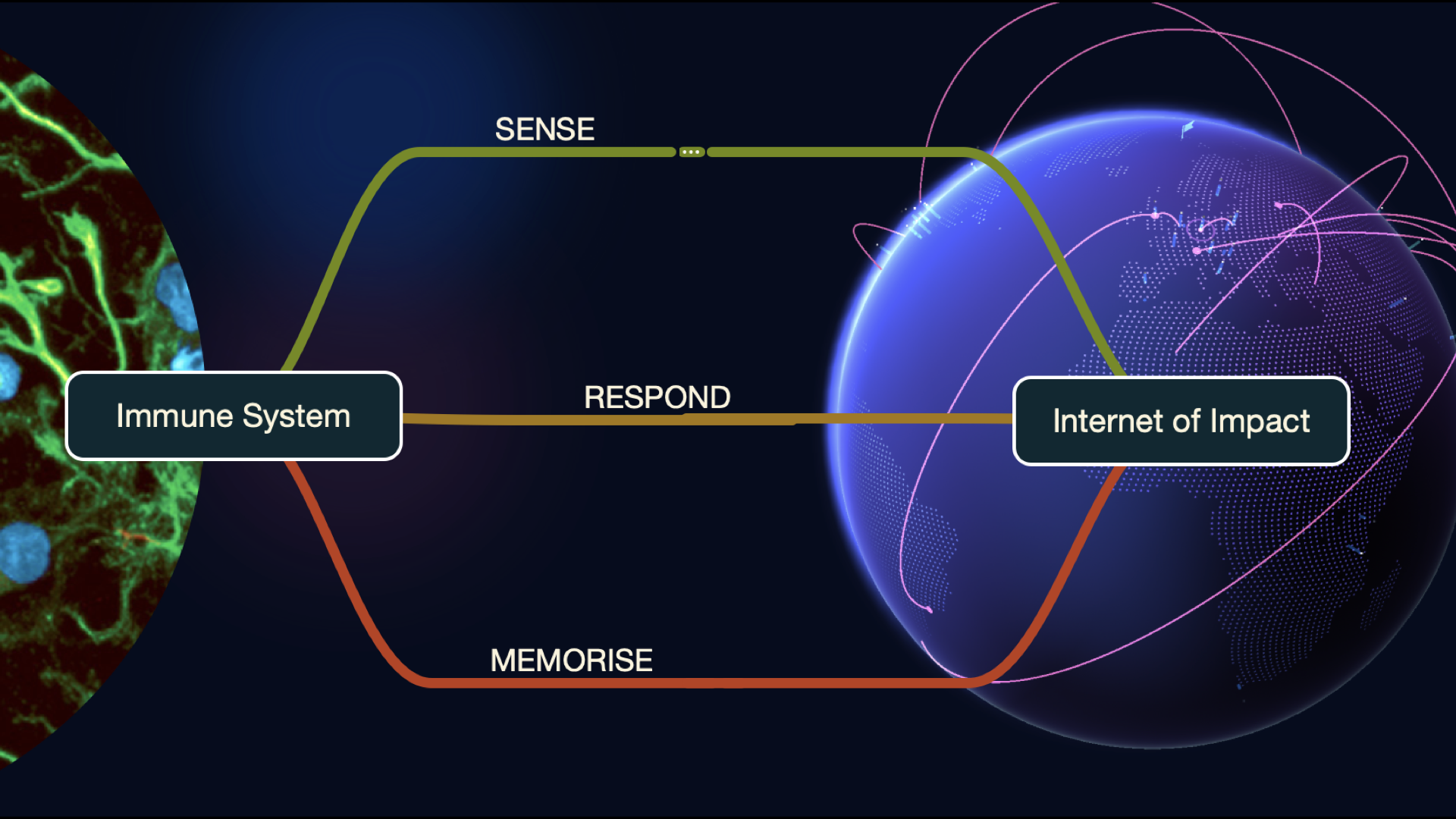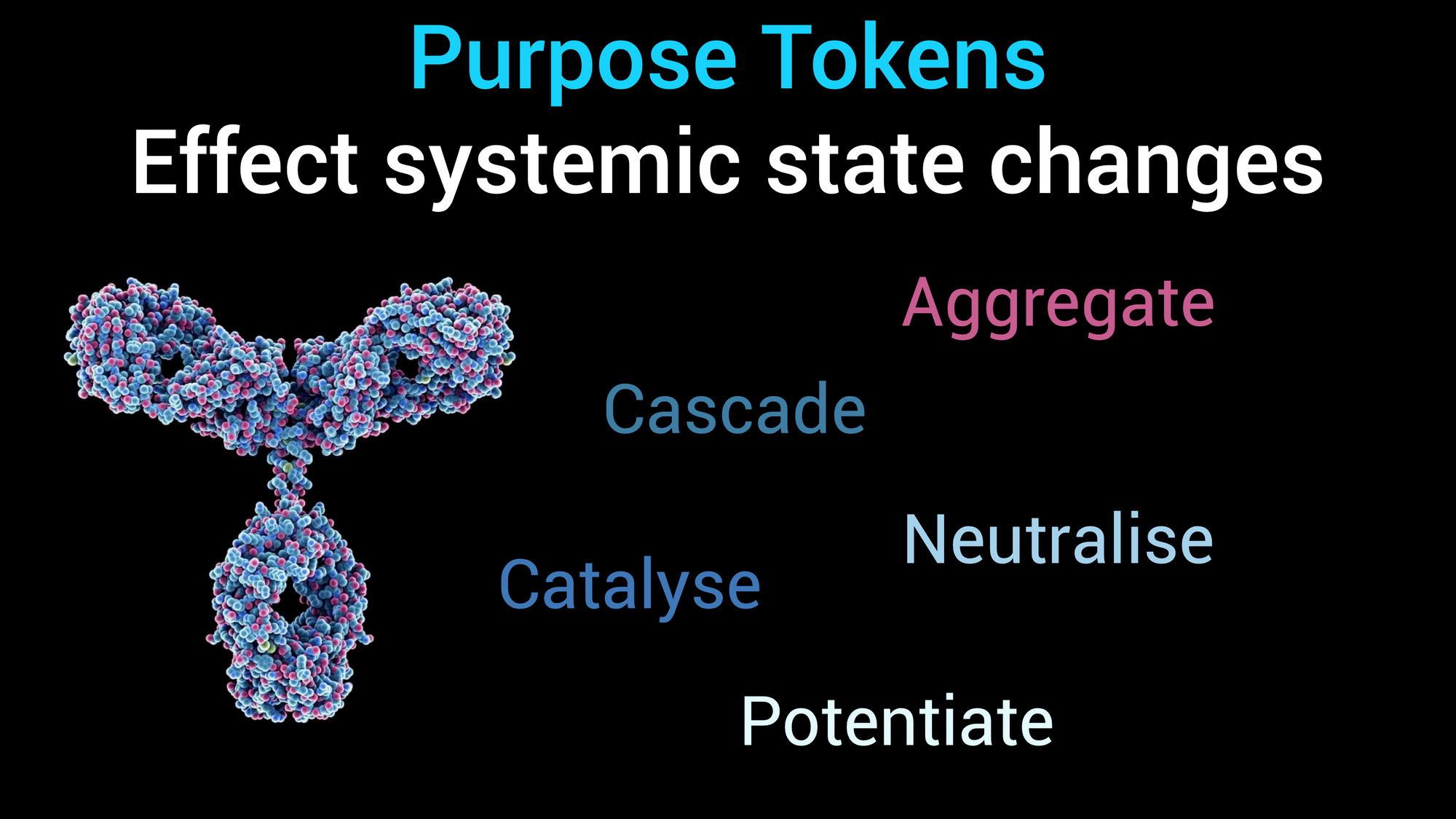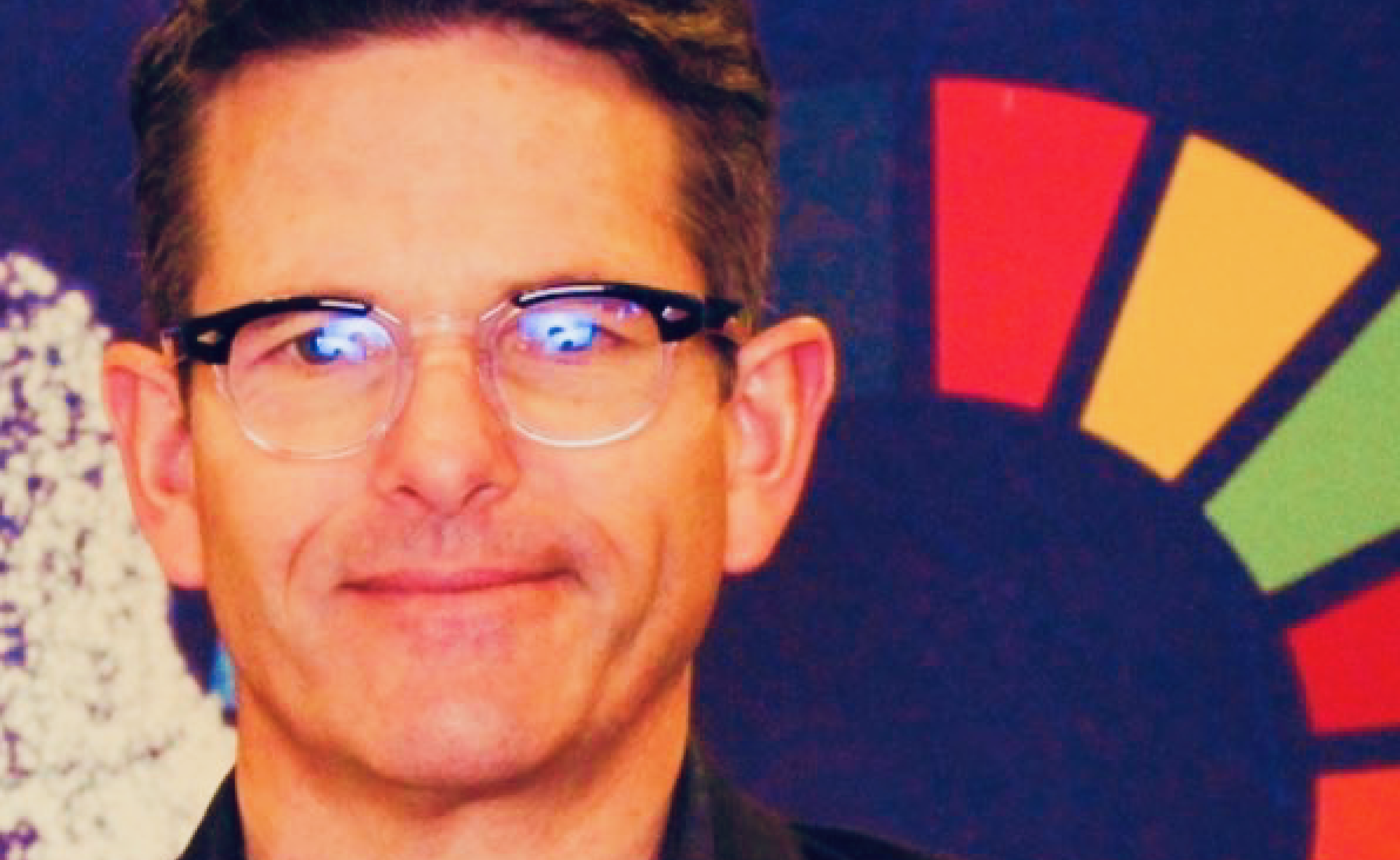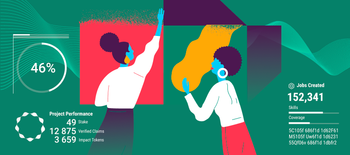Dr Shaun Conway, the founder of ixo, explains his vision for using blockchain technologies to build a global digital immune system for humanity.
Interview by Mathilda deVilliers
Shaun has always looked at complex systems from a biological and natural world complex systems perspective. He gets excited talking about how biomimetic principles can be applied to how we analyse, design and build information systems and digital products for the benefit of humanity.
He started his career as a physician in the ER and went on to become an influential young leader in the global response to the HIV/AIDS pandemic, and activist for treatment access, in South Africa and internationally. He worked as a researcher, technical and policy advisor, and project director for leading global institutions such as the World Health Organisation, World Bank, UNICEF, UK Department for International Development, large corporations, government agencies and NGOs. He founded a series of successful social ventures, large-scale public health initiatives and health technology innovations, many of which have continued to flourish.
Over the past almost-decade ("has it really been that long!?") he has been tirelessly working on a big idea for dealing with the ills and emergencies now facing the world, with the vision of creating a Digital Immune System for Humanity. He describes this as "a globally distributed blockchain that enables us to much more effectively sense and repond to sustainability threats, and opportunities for impact".

The ixo blockchain Internet of Impact implements an original idea Shaun presented in 2008 for transforming how capital gets allocated and how information gets used through collaborative, decentralised aid marketplaces.
Prior to this, for his postdoc degree in public health medicine at the London School of Hygiene and Tropical Medicine (LSHTM), Shaun started researching how cybernetic systems could be used to improve decision-making for public policy. He explored ideas such as stigmergy and prediction markets. But found the information technologies available at that time were just not ready to implement the verifiable information systems and incentive mechanisms that are needed for decentralised decisioning for high-stakes policies. And it was hugely challenging to get the profs at LSHTM to understand these ideas! Now we have DAOs!
Remember this was before most people had experienced the magic of Google search algorithms, which are based on Bayesian prediction. Today, we see the same playing out with the general public not yet grasping blockchain and other Web3 technologies, nevermind having hard experience with those systems.
When Shaun read the Bitcoin whitepaper in 2013, it was something of a Eureka!! moment. It seemed obvious to him that this technological breakthrough could be used to implement the ideas he had been experimenting with, to fundamentally improve how the world operates - for the good of humanity. Information can be stored on blockchains, like DNA, together with encoded representations of the changing states of the world over time. This breakthrough could improve information-sharing, coordination and replication of responses to real-world state changes. "We can use these state-changes to drive decentralised financing mechanisms and tokenised incentives through blockchain state-changes."
Check out Shaun's keynote presentation from Cosmoverse 2021 to hear how he talks about Earth State.
This immune system metaphor extends beautifully into how we understand the functions of tokens and Shaun continues to lead work for the Interchain Foundation on new standards for tokens that embed executable rights and verifiable data, as the basis for non-fungible Impact Tokens.
Tokens are like digital antibodies that amplify, aggregate, potentiate or neutralise processes in the real world.



